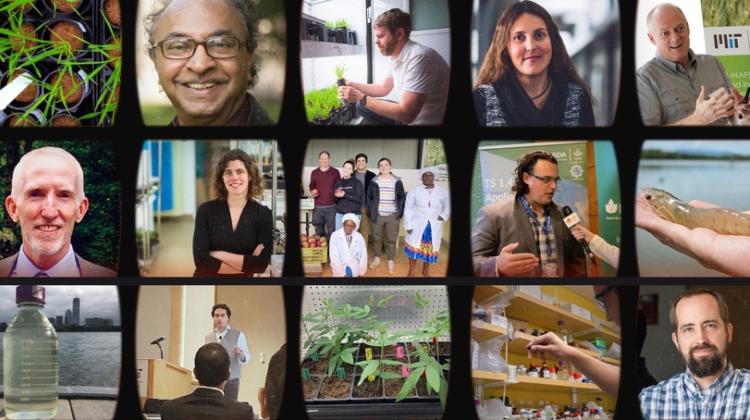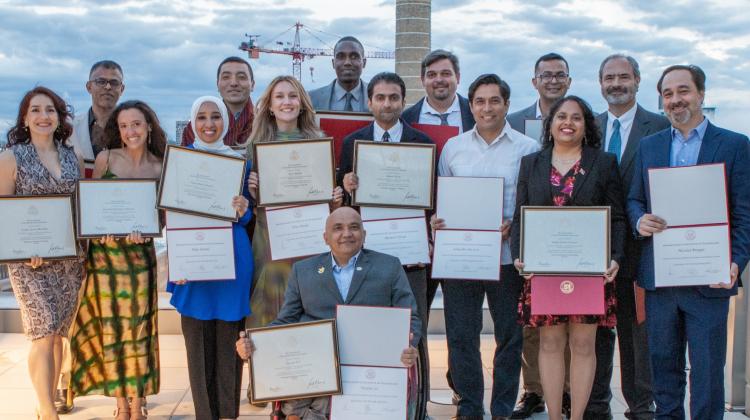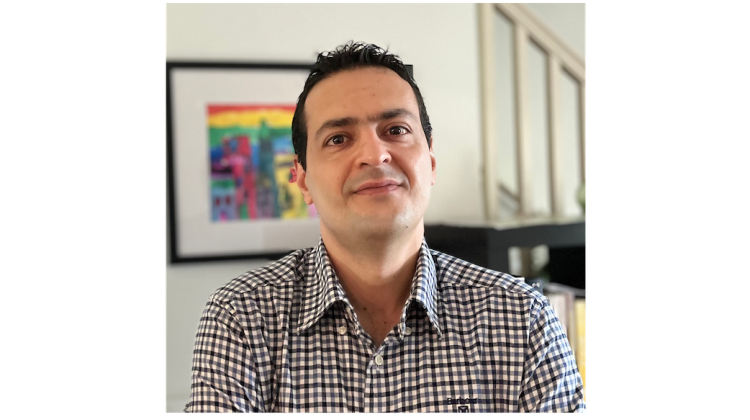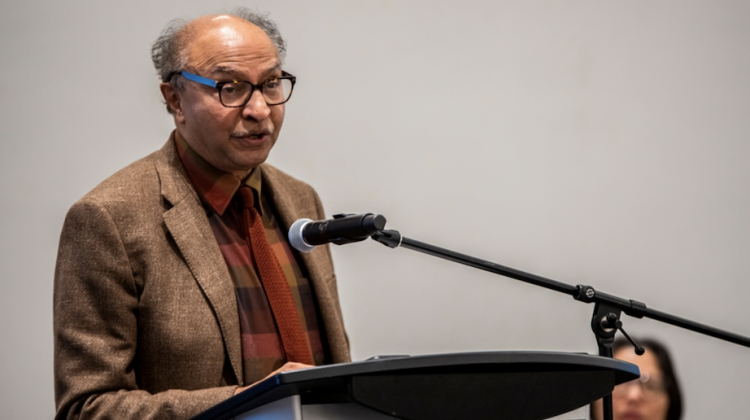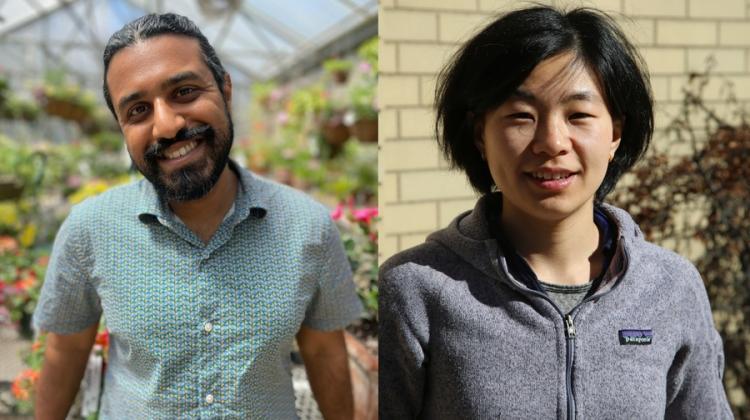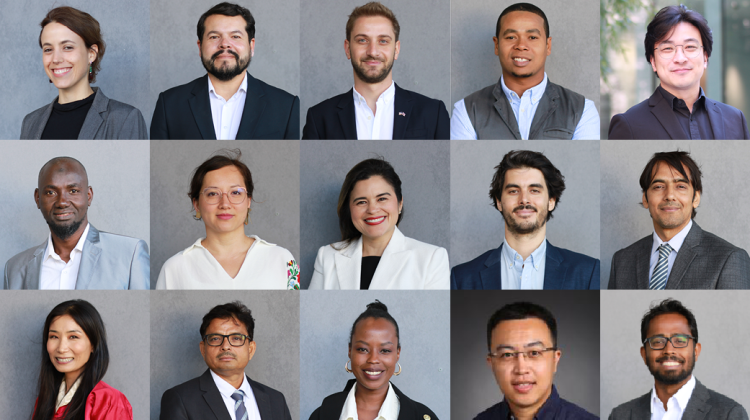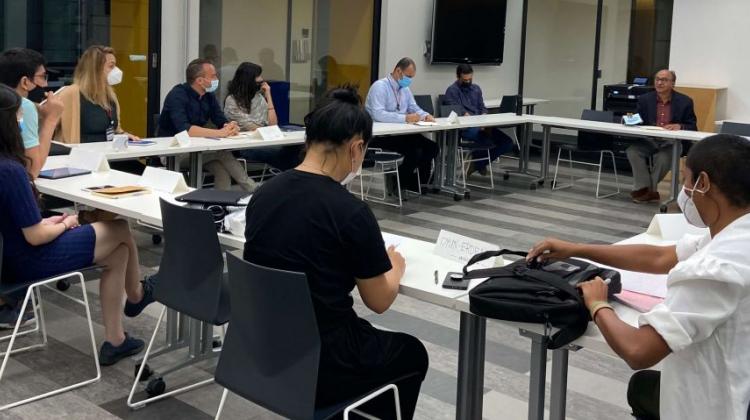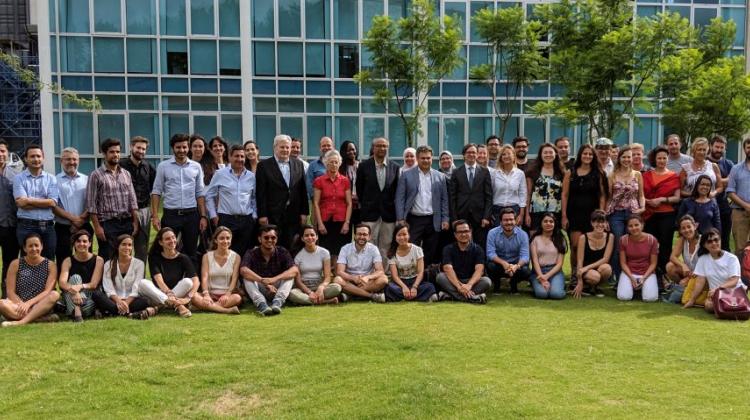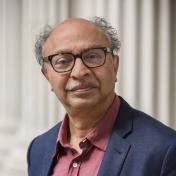Bish Sanyal
Bish Sanyal is the Ford International Professor of Urban Development and Planning and Director of the Special Program in Urban and Regional Studies (SPURS)/ Hubert Humphrey program at the Massachusetts Institute of Technology. He served as Head of the Department of Urban Studies and Planning at MIT from 1994 to 2002 and was the chair of the entire MIT faculty from 2007 to 2009.
Prof. Sanyal’s research, teaching and academic leadership reflect his multidisciplinary education in Architecture (B.A.), Urban Planning (MUP), and International Development Planning (PhD). His research and teaching also draws on his extensive professional practice, first in India as a project manager for the construction of a bridge for the Stresscon Engineering Corporation and later (1978 – 1980) on project evaluation for the World Bank’s first urban housing project in Lusaka, Zambia. After joining MIT, Prof. Sanyal has served as a consultant for United Nations Development Program (on decentralization), International Labour Office (on urban informal economies), United Nations Human Settlements Programme (on housing policies), United Nations Centre for Regional Development (on non-governmental organizations), United States Agency for International Development (on technology evaluations), Inter-American Development Bank (on housing policies in Argentina), the Ford Foundation (on the evaluation for income generating projects), and the Rockefeller Foundation (on the development of curriculum for the Indian Institute of Human Settlements in India). In addition, Prof. Sanyal has advised national governments on housing policies and planning education in South Asia, Middle East, Africa and Latin America. At present, Prof. Sanyal is advising the World Bank on a new initiative to evaluate the World Bank’s impact on influencing urban growth in developing countries.
Prof. Sanyal’s research covers a range of topics – housing projects and policies in newly industrializing nations, urban informal economy, planning organizations and theories of project implementation, history of planning ideas, and international planning education. His extensive research publications include Breaking the Boundaries – A One-World Approach to Planning Education (1990, Plenum Press), The Profession of City Planning: Changes, Successes, Failures and Challenges (1999, co-edited by Lloyd Rodwin), Hybrid Planning Cultures in Comparative Planning Cultures (2005, Routledge), and Planning Ideas That Matter (2012, MIT Press, co-edited with Lawrence Vale and Christina Rosan). In 2018, he received the the international award (Gill-Lim Award) from the Center of Developmental Studies for his contribution to scholarly research on humanistic globalization.
He recently completed a 10-million-dollar research project (Sole Project Investigator) to create a comprehensive initiative on technology evaluation (CITE) at MIT. Prof. Sanyal is currently engaged in completing two book manuscripts, titled Hidden Successes: Good Bureaucratic Performance in Developing Nations and Transfer of Planning Ideas: Why Some Work While Others Fail. In addition, he is working on a book on the History of International Development Planning Education in U.S. universities.
Prof. Sanyal’s teaching areas are diverse, demonstrating his multi-disciplinary education and wide professional experience in several countries. He teaches courses on Implementation: The Dialectic of Theory and Practice (advanced seminar), New Planning Sensibilities (introductory course), Development Laboratory for Technology Entrepreneurs (undergraduate course with MIT’s D-Lab), and field work based courses on urban housing and employment policies (currently in Buenos Aires, Argentina; prior case of a mid-size town in West Bengal, India). Prof. Sanyal was awarded MIT’s prestigious award for teaching – the MacVicar Faculty Award in 2011.
Prof. Sanyal serves in the editorial board of two journals – Planning Theory and Practice and Planning Theory and reviews journal articles and book manuscripts for: Journal of Planning Education and Research, Regional Studies, Urban Studies, Third World Planning Review, International Regional Science Review, MIT Press, The John Hopkins University Press, The University of California Press, Routledge and SAGE. He also served as a reviewer for the U.S. Fulbright Program, Swiss National Science Foundation, Social Science and Humanitarian Research Council of Canada. Prof. Sanyal is the founding member of the Global Planning Education Interest Group (GPEIG) within the Association of Collegiate Schools of Planning (ACSP) and received the inaugural award for Outstanding Service in Global Planning Education in 2016.
Courses
Issues in international development, appropriate technology and project implementation addressed through lectures, case studies, guest speakers and laboratory exercises. Students form project teams to partner with community organizations in developing countries, and formulate plans for an optional IAP site visit. (Previous field sites include Ghana, Brazil, Honduras and India.) Recitation sections focus on specific project implementation, and include cultural, social, political, environmental and economic overviews of the target countries as well as an introduction to the local languages. Enrollment limited by lottery; must attend first class session.



